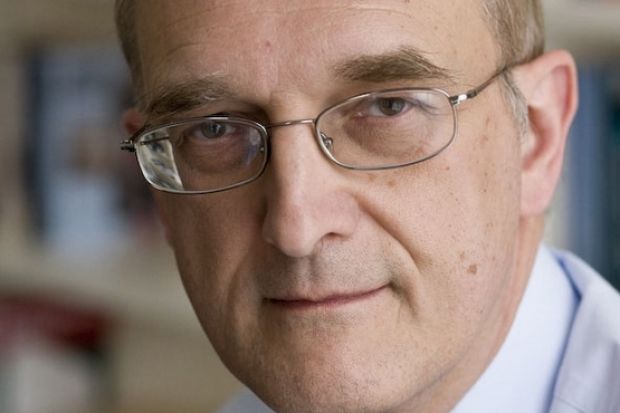Far from being restricted to ‘blue-skies’ research, Sir Leszek Borysiewicz said, “today’s Thomas Edisons, Niels Bohrs and Louis Pasteurs are equally welcome” at Cambridge.
The former chief executive of the Medical Research Council made the remarks in a lecture entitled “Putting research back at the heart of the system” at the Cambridge Centre for Research in the Arts, Social Sciences and Humanities last night.
The event was part of a 10th-anniversary lecture series on “The Idea of the University”.
Sir Leszek said: “Our contribution to global society goes far beyond the mere economic and far beyond the short term: so, as we make that contribution, we should insist that it is valued appropriately…I find the silence of current government policy towards the postgraduate and postdoctoral community that are so vital to the life and being of a university deafening.”
In assessing the “impact” of research, continued Sir Leszek, it was essential to take account of differences between disciplines and relevant timescales.
“Humanised monoclonal antibodies were invented in Cambridge research laboratories,” he pointed out, “and 30 per cent of the pharmaceutical drugs now under development rely on that technology”.
Yet it was equally important to value the work of the Department of Theoretical and Applied Linguistics in “bringing the latest linguistic research into the classroom to help parents and teachers nurture the gift of bilingualism”.
It was partly through trying to compare such different things that the Higher Education Funding Council for England had “invented a complicated, counter-intuitive, and in some ways contradictory concept of ‘impact’”.
Yet a big part of the problem, he suggested, was linguistic, since “Hefce does not mean ‘impact’ in the same way that the rest of the English-speaking world does.
“The frustration of [the research excellence framework] is that it requires distinguished intellectuals – people whose job and passion is language and how it is used – to comprehend phrases like ‘expert research user’ and ‘impact sub-profile’…If official guidelines are written in such opaque terms, guaranteed to provoke antibodies in the academics affected by them, then I am not surprised that explaining Hefce’s meaning of terms proved ‘non-trivial’.
“But if Hefce’s promises come to fruition, then ‘socio-economic impact’, rather than ‘economic impact’, comes much closer to my idea of the utility of the arts and humanities research – that is, what real human beings would consider the ‘impact’ of such research on the generality of humankind.”
Register to continue
Why register?
- Registration is free and only takes a moment
- Once registered, you can read 3 articles a month
- Sign up for our newsletter
Subscribe
Or subscribe for unlimited access to:
- Unlimited access to news, views, insights & reviews
- Digital editions
- Digital access to THE’s university and college rankings analysis
Already registered or a current subscriber? Login
